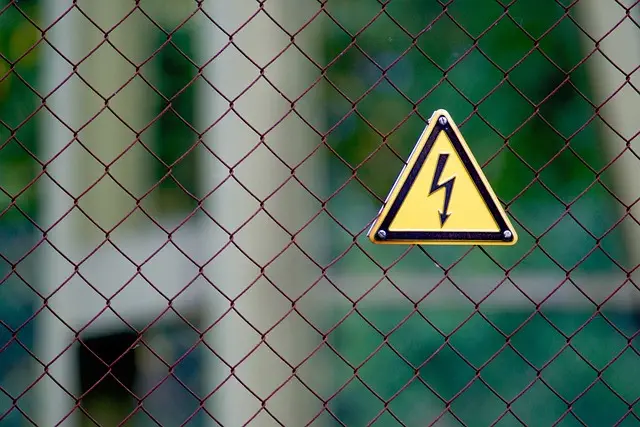Muscle soreness after workouts stems from various causes like micro-tears in muscle fibers and delayed onset stiffness, exacerbated by factors like intense exercises, improper form, overtraining, and psychological stress. Customized workout plans tailored to individual fitness levels, affected muscle groups, and goals are key to effective relief. In Indiana, the Kratom Law regulates Mitragyna speciosa (kratom) use for pain management, emphasizing responsible access and consulting healthcare professionals alongside evidence-backed strategies like proper hydration and nutrition for optimal muscle recovery.
Muscle soreness can significantly impact your daily life, but relief is within reach. This article delves into effective strategies, with a focus on the transformative power of customized workout plans. We explore the science behind muscle recovery and why tailored routines are key to alleviating discomfort. Additionally, we discuss the Indiana Kratom Law and its implications for natural remedies seeking to enhance well-being. By understanding these aspects, you’ll gain valuable insights into achieving optimal muscle soreness relief.
- Understanding Muscle Soreness and Its Causes
- The Role of Customized Workout Plans
- Indiana Kratom Law: Implications for Relief and Well-being
Understanding Muscle Soreness and Its Causes

Muscle soreness is a common issue that many individuals experience after intense physical activity or workouts. It’s a sign that your muscles have been challenged and are adapting, but it can also be uncomfortable and debilitating for some. Understanding the causes behind this phenomenon is key to finding effective relief.
There are several factors contributing to muscle soreness, ranging from microscopic tears in muscle fibers to delayed-onset muscle stiffness. Intense or unfamiliar exercises, such as lifting heavy weights or trying a new sport, can lead to acute muscle damage. Additionally, the way your body recovers and responds to exercise plays a role; inadequate stretching before and after workouts, improper form during exercises, or overtraining without adequate rest can exacerbate muscle soreness. Interestingly, even psychological factors like stress and anxiety have been linked to heightened perception of soreness. Given the complex nature of muscle recovery, it’s essential to tailor strategies, including customized workout plans, to address these causes effectively.
The Role of Customized Workout Plans

Customized workout plans play a pivotal role in alleviating muscle soreness, offering a targeted approach to recovery and comfort. Unlike generic routines that might provide general benefits, tailored exercise programs consider individual needs, taking into account factors like current fitness level, specific muscle groups affected, and personal goals. This personalized touch is particularly relevant when navigating the complexities of post-workout recovery, especially in regions with specific legal considerations like Indiana’s kratom law—which impacts access to a natural remedy for pain management.
By designing workouts that align with an individual’s capabilities and challenges, these plans can enhance overall well-being. They promote effective muscle repair and reduce discomfort, thereby fostering a more enjoyable and sustainable fitness journey. Customization ensures that each exercise session contributes meaningfully to recovery, making it an indispensable tool for anyone seeking relief from muscle soreness in a safe and legal manner, especially those navigating the local regulatory landscape, such as Indiana’s kratom law.
Indiana Kratom Law: Implications for Relief and Well-being

In Indiana, the Kratom Law regulates the possession and sale of Mitragyna speciosa, commonly known as kratom, a natural herb with analgesic (pain-relieving) properties. This law was enacted to ensure consumer safety and prevent misuse of kratom, which can cause muscle soreness when misused or taken in high doses. For individuals seeking muscle soreness relief, it’s crucial to understand the Indiana Kratom Law. The law allows for responsible use by limiting access to licensed vendors and setting age restrictions, thereby minimizing risks associated with self-treating chronic pain or soreness with unregulated kratom products.
For muscle soreness relief, many turn to alternative methods including gentle exercise and natural remedies. While kratom may offer temporary relief, its effectiveness for chronic conditions is still under debate, and misuse can lead to adverse effects. Customized workout plans, in conjunction with proper hydration and nutrition, remain a safe and evidence-backed strategy to alleviate muscle soreness. Always consult healthcare professionals before incorporating any new supplements or substances into your wellness routine.
Customized workout plans, tailored to individual needs, play a significant role in alleviating muscle soreness. By understanding the root causes, from intense workouts to delayed onset muscle stiffness, these personalized programs can offer effective relief. Moreover, the Indiana Kratom Law highlights the importance of natural remedies for well-being, providing an additional layer of support for those seeking alternative methods to manage discomfort. Integrating tailored fitness routines and exploring legal, safe options like kratom can contribute to a holistic approach to muscle soreness relief.














